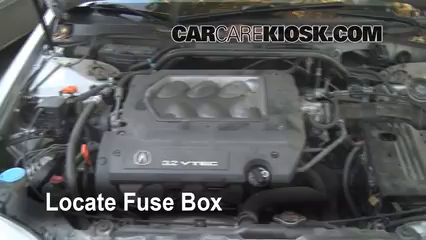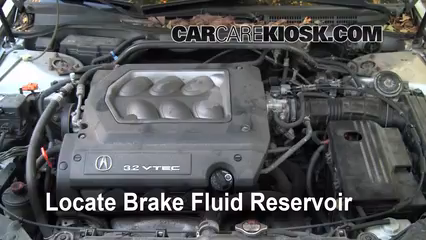Coolant Level Check on a 1999 Acura TL 3.2L V6
Acura TL Model Years - 1999, 2000, 2001, 2002, 2003
Coolant reservoir location to see if your coolant level is low
Hans Angermeier is an ASE certified Maintenance and Light Repair Technician and has produced over 100,000 videos showing drivers how to fix things on their cars. He has broad expertise on basic repair procedures covering the majority of cars on the road. Over the past 10 years, Hans has been focused on building CarCareKiosk, which is visited by millions of drivers each month.
- Lake Ford helped make these videos
- Feedback
- Download Acura owners manuals
Checking the engine coolant (also known as antifreeze) level in your 1999 Acura TL is pretty easy. In order to get an accurate reading, your 3.2 liter engine should be cool to the touch when you check it. Engine coolant / antifreeze circulates through your engine to keep it cool in the summer but won't freeze in the winter. The video above shows you where the coolant reservoir in your TL is located and how to check the coolant / antifreeze level. If you need to add anti-freeze, be sure to check your owners manual to determine the correct type of coolant to add - in Acuras, it usually located in a section titled Fluid Capacities towards the end of your manual. See our video on how to add engine coolant for tips on adding coolant to your TL.
Always wear safety goggles when working on your TL. Taking off the coolant reservoir cap on a warm engine could cause the cap to up explosively and fluid to spray out of the reservoir. If you notice an oily surface in your coolant, immediately have your mechanic inspect your TL for head gasket leakage.
- Advance Auto coupon for
20% off entire order: KIOSK20















 STOP AND SEAL LEAKS
STOP AND SEAL LEAKS EXTENDS A/C LIFE
EXTENDS A/C LIFE PROTECTS AGAINST A/C WEAR
PROTECTS AGAINST A/C WEAR